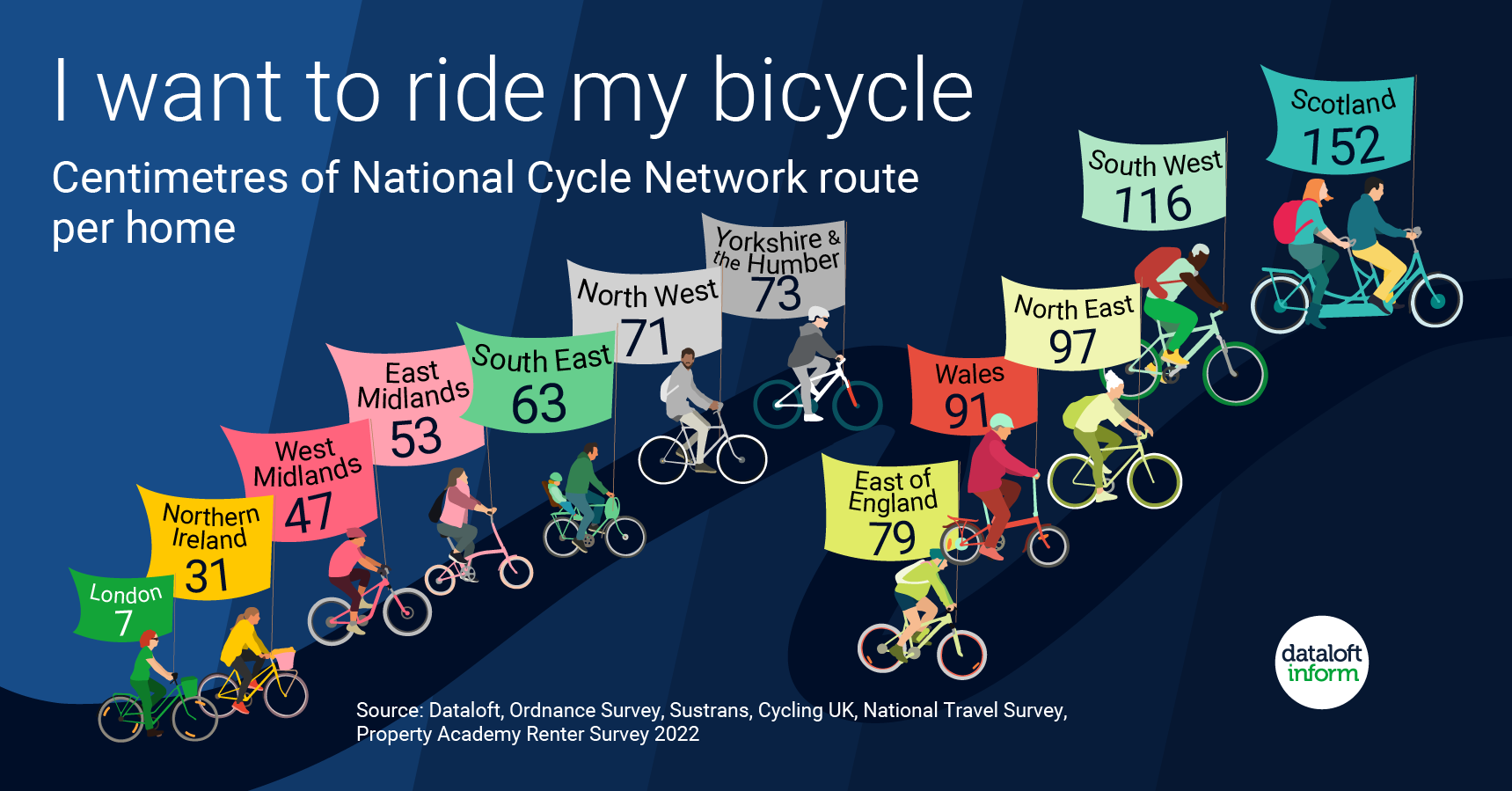
National Bike Week (5 June – 11 June 2023) is a time to celebrate the extensive network of national cycle routes in the UK, spanning over 12,500 miles. These routes provide a vital infrastructure for cycling enthusiasts and promote a healthier and more sustainable mode of transportation. As we delve into the statistics and insights surrounding cycling in the UK, it becomes clear that cycling is a popular activity with numerous benefits.
In England and Wales, there are approximately 2,200 households per mile of national cycle route on average. This highlights the accessibility of cycling infrastructure, ensuring that a significant portion of the population has convenient access to these routes. However, when we examine the distribution of cycle routes across different regions, we discover some interesting variations. In the South West and Scotland, households have access to over 1 meter of cycle route per home, while in London, this figure is significantly lower, with just 7cm per home. This discrepancy underscores the need for continued investment in cycling infrastructure, particularly in densely populated areas like London.
The popularity of cycling in the UK is evident when we consider the ownership rates of pedal bikes. Nearly half of the population in England aged 5 and above own a pedal bike, with ownership rates being highest among age groups 5–10, 11–16, and 40–49. This data suggests that cycling is not only enjoyed by the younger generation but also by adults in their 40s who recognize the physical and mental health benefits of this activity. Commuting and leisure are cited as the primary reasons for cycle journeys, highlighting the versatility of cycling as a mode of transportation and a recreational pursuit.
Cycling has also gained traction among renters who live with friends or in house shares. Surprisingly, more than one in ten of these individuals would be willing to pay extra for secure bike storage. This finding showcases the importance of providing adequate facilities for bike storage in rental properties, thereby encouraging more people to incorporate cycling into their daily lives.
In terms of its overall impact on traffic, cycling accounts for approximately 1% of all traffic mileage on Britain's roads, amounting to an impressive 4.5 million miles cycled each year. This figure demonstrates the significant contribution of cyclists to reducing congestion and carbon emissions. By opting for bicycles instead of motorized vehicles, cyclists are actively participating in creating a cleaner and greener environment for everyone.
These statistics, sourced from reputable organizations such as Dataloft, Ordnance Survey, Sustrans, Cycling UK, and the National Travel Survey, shed light on the growing popularity and positive effects of cycling in the UK. National Bike Week serves as a platform to celebrate the achievements in cycling infrastructure, encourage more people to take up cycling, and promote its numerous benefits to individuals and society as a whole.
As we navigate the future, it is essential to continue investing in cycling infrastructure, ensuring equitable access to national cycle routes across all regions. By doing so, we can foster a culture of cycling that not only promotes physical and mental well-being but also contributes to a more sustainable and environmentally friendly society. So, grab your bike, join the movement, and pedal your way to a healthier future during National Bike Week and beyond.









